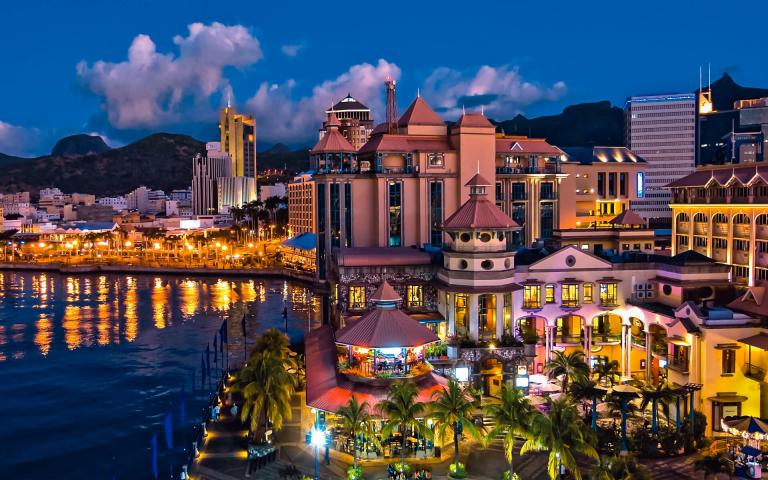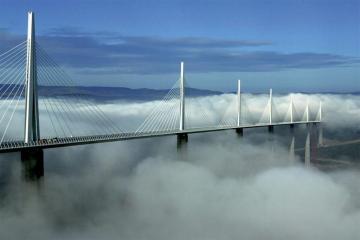While many of Europe's magnificent cities remain eclipsed by their more well-known counterparts, it is a treasure store of enchanted towns. From the artistic appeal…


Port Louis, the vibrant capital and largest city of Mauritius, exemplifies the island nation’s extensive history, cultural variety, and economic strength. Situated on the northwestern shore of this tropical haven, Port Louis functions as the vibrant core of Mauritius, merging colonial allure with contemporary vitality. This introduction will examine the diverse dimensions of Port Louis, including its historical origins, geographical importance, cultural diversity, and its function as the nation’s financial and political center.
The narrative of Port Louis commences in the early 18th century when the French East India Company acknowledged the strategic significance of the natural harbor located on the northwestern coast of Mauritius. In 1735, during the governorship of Mahé de La Bourdonnais, the groundwork for what would later be known as Port Louis was established. Established in tribute to King Louis XV of France, the city rapidly developed into a crucial harbor for French naval endeavors in the Indian Ocean.
The city’s development encountered numerous hurdles. It endured various storms, both actual and metaphorical, encompassing catastrophic cyclones and shifts in colonial governance. In 1810, the British assumed control of Mauritius, marking the commencement of a new epoch for Port Louis. Notwithstanding the shift in authority, the city preserved a significant portion of its French character, a heritage that remains apparent in its architecture, street nomenclature, and cultural traditions.
Port Louis is ideally located on the northwest shore of the island, featuring a natural harbor that has been vital to its development and success. The city is surrounded by a semicircular arrangement of mountains, notably the renowned Le Pouce (“The Thumb”), which offers a breathtaking backdrop to the urban scenery. This geographical location provides shelter from severe weather while also presenting a scenic view that enchants both residents and visitors.
The city’s geographical position has been important to its evolution as a significant port and economic center. The harbor, perpetually enhanced and enlarged throughout the years, continues to serve as a crucial connection in global marine commerce routes. It manages a substantial share of Mauritius’ imports and exports, serving a crucial function in the nation’s economy.
Port Louis is distinguished by its profound cultural diversity. The city exemplifies a microcosm of Mauritius’ multicultural society, where individuals of African, Indian, Chinese, and European heritage cohabit happily. The city’s numerous neighborhoods, each with a unique character and heritage, exemplify this cultural amalgamation.
Chinatown, characterized by its vibrant streets and traditional buildings, provides insight into the Sino-Mauritian community’s lifestyle. The vicinity of the Jummah Mosque reflects the impact of the island’s Muslim community, whereas the Tamil Temple in the city center exemplifies the Hindu legacy. The cultural diversity in Port Louis extends beyond architecture, influencing many facets of life, including the languages spoken and the gastronomic offerings available in its numerous restaurants and street food vendors.
Port Louis, as the capital, is the unequivocal economic and political center of Mauritius. The city contains essential government institutions, including the National Assembly and multiple ministries, establishing it as the nucleus of the nation’s political activity. The Supreme Court, situated in a historic edifice in the city center, epitomizes the nation’s legal system.
Port Louis has transitioned from a historical port city to a contemporary financial hub. The city hosts the Stock Exchange of Mauritius along with other banks, insurance firms, and other financial entities. The establishment of the Ebène Cybercity on the periphery of Port Louis has solidified the area’s position as a significant contributor to the worldwide IT and outsourced sectors.
The urban landscape of Port Louis is an intriguing amalgamation of historical and contemporary elements. Colonial-era structures, such as the Government House and the Municipal Theatre, coexist with contemporary skyscrapers, forming a distinctive urban tapestry. The waterfront region, previously characterized by warehouses and docks, has been converted into a dynamic commercial and recreational sector called Le Caudan Waterfront. This development represents the city’s continuous evolution and its capacity to adapt to changing circumstances while maintaining its historical integrity.
Port Louis, notwithstanding its numerous advantages, encounters obstacles characteristic of swiftly expanding metropolitan areas. The city continues to contend with traffic congestion, urban sprawl, and the necessity for sustainable growth. Initiatives to enhance public transportation, improve green areas, and promote sustainable urban planning are in progress, demonstrating a commitment to developing a more livable and environmentally sustainable city.
Port Louis, boasting a population above 147,000 according to the 2018 census, serves as more than merely the capital of Mauritius. It is a metropolis that embodies the island nation’s evolution from a colonial outpost to a contemporary, cosmopolitan community. The streets narrate tales of historical conquests, cultural assimilation, and economic evolution. Port Louis, while evolving, retains its essence, presenting a distinctive amalgamation of tropical allure, historical importance, and contemporary vibrancy. Port Louis serves as a portal for both visitors and inhabitants to comprehend the essence of Mauritius, encouraging the discovery of its many neighborhoods, vibrant marketplaces, and profound cultural legacy.
Currency
Founded
Calling code
Population
Area
Official language
Elevation
Time zone
Situated among the blue waves of the Indian Ocean, some 2,000 kilometers off East Africa’s southeast coast, Mauritius is a magical island republic. Officially the Republic of Mauritius, this tropical paradise boasts a rich history, varied culture, and breathtaking natural beauty that…
While many of Europe's magnificent cities remain eclipsed by their more well-known counterparts, it is a treasure store of enchanted towns. From the artistic appeal…

The 7 Wonders of the 21st Century feature amazing successes redefining human creativity and engineering capability. From the calm Temple of Buddha's Origin in Leshan,…

Home France is recognized for its significant cultural heritage, exceptional cuisine, and attractive landscapes, making it the most visited country in the world. From seeing…

Discover the vibrant nightlife scenes of Europe's most fascinating cities and travel to remember-able destinations! From the vibrant beauty of London to the thrilling energy…

From Rio's samba spectacle to Venice's masked elegance, explore 10 unique festivals that showcase human creativity, cultural diversity, and the universal spirit of celebration. Uncover…

© All Rights Reserved. By Travel S Helper